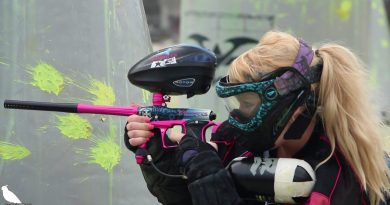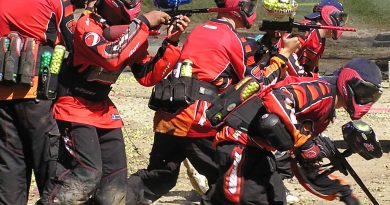Team organization
Whether you are planning on attending the Amateur Open in Pittsburgh or any other tournament for that matter, there are several factors that must be considered when organizing a team and preparing for such an event. Some of these are very basic but are often overlooked by new and established teams alike. These are your team roster, use and availability of alternates, preparation for the event and the level of play that your team will be participating in (rookie, novice, amateur or professional). These seem to be the simplest and most basic of areas but many teams over look these, focusing on other topics, then finding themselves rushed to make a decision that should have already been dealt with. Lets take a basic class #101 approach to team management and look at these topics in detail.
What is a team roster? A team roster is the list of team members that will be attending the tournament. Above all else, this is probably the largest concern of a team captain. It seems that inevitably, the very night before the tournament one or more team members will call with major emergencies and multiple excuses as to why they will not be able make the tournament. This will happen and you must be prepared to handle such a situation. The other way that the team roster will effect the team is in consideration of what level or class of play that the team will be competing in.
Currently there are multiple considerations as to how the team is ranked and this varies from tournament to tournament. The ranking of a team is primarily influenced by the players on the teams previous tournament experience, if you had a player who’s name appeared on a professional team roster with in the last three years, there is no way that the team can participate in the amateur division. Currently there is a rule book in production that will unit all of the tournament circuits as too a generalized criteria for the ranking of teams, what divisions the teams may play in and other issues that govern tournament play.
A general rule of thumb is have at least one alternate on the roster for a three man event, two alternates at a five man event and three alternates at a ten man event. Often the number of alternates is limited by the tournament promoter, check with them and see how many you can have appear on the roster and utilize this to you fullest advantage by filling these spots. It would be much wiser to run a three man squad with one alternate than to run a five man squad with no alternates. You never know what is going to happen at the last minute, who will not be able to attend or who will not be able to complete the tournament for any number of reasons.
Alternates have a multiple of benefits when accompanying the team, but many people are uncertain as to what being an alternate entails. The first mistake that is commonly assumed in reference to an alternate is that they are not going to play in the tournament unless there is an emergent situation (injury, down marker, etc.). The person in this situation would not be an alternate, he would be there for support. An alternate is a member of the team, who plays with the team, practices with the team on a regular basis and will play in the tournament equally. In the case of a three man event the alternate player would sit out the first game, the second game he would be in, while someone else would sit out and it would continue to rotate through the squad until the conclusion of the event. An alternate pays his share of the entry fee and plays his share of the tournament.
Another benefit of having alternates on the roster is the cost of the event. Instead of five players paying sixty dollars each for a three hundred dollar entry fee, if you have two alternates it would drop the cost to forty three dollars each. This is extremely beneficial to a team just starting out, without sponsors tournament entry fees can be extreme at times, not to mention the cost of lodging when you travel to tournaments. By including alternates on the roster you lower the expense of the entry fee to more reasonable and affordable level, this is extremely helpful when you look at some of the national events who’s fees can be in excess of six hundred dollars per event.
When the team is at the crony, so are the alternates. In the event that a marker is too hot and will not come down to permissible levels or is malfunctioning, the alternate will either exchange his marker with his teammate or the alternate will assume the other players position entirely. The alternate is there in the event of an injury, which prevents another player from continuing with the tournament. An alternate is there when someone needs a break. An alternate can assist in the staging areas by working on markers, loading guppies, getting air or paint and cleaning old paint off fellow teammates and their equipment when the alternate player is not playing. In a tournament environment every available hand is a plus, especially in the staging areas between games and the alternates are the ones who assist in picking up the slack by not only assisting the team but playing as well. An alternate is a valuable asset to a team, make the most of these positions on your team roster and fill all the available spaces.
The preparation for the tournament is critical and encompasses everything from practices before the event, the paying of the entry fee, the condition of your equipment, and accommodations for the team. Many teams focus heavily on one of these factors (usually the practice category) only to find themselves blindsided and rushing haphazardly to cover another issue that should have already been addressed in their preparation for the event. Preparation for a tournament has many sides to it and doesn’t always have to do with how you play, despite how well you play there are numerous outside factors that will influence how good of a time you will have at the event overall.
Do not make the mistake in thinking that practice as a team is unimportant, it is the single most important factor that will influence how the team fares overall but there are other considerations that must be addressed for preparing for a tournament. How you approach practice is almost as diverse as the styles of play that individual players can use. Some teams practice on a weekly basis while others may only meet on a monthly basis. Some teams only scrimmage, others play walk on games, others may participate in extensive drills and maneuvers while some do a little of everything. Who has the right to say what the best method of practice is, it is more of an individual factor that will effect each team differently. One thing that I would suggest is that teams should mix the drills with the scrimmages, and when scrimmaging attempt to do many of these drills. Also, change up players.




